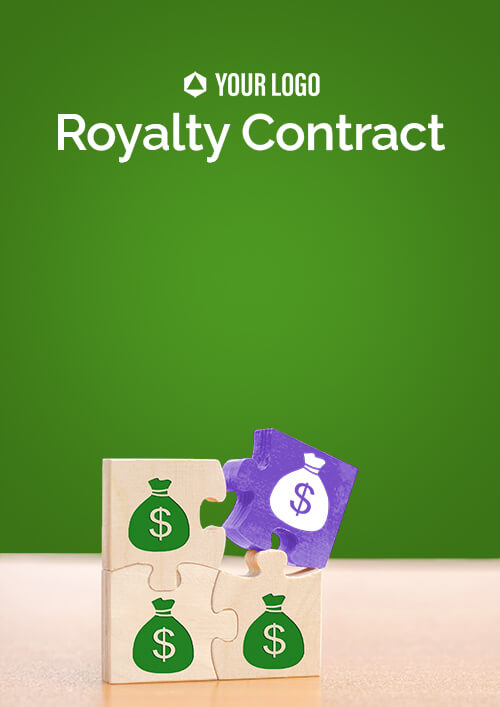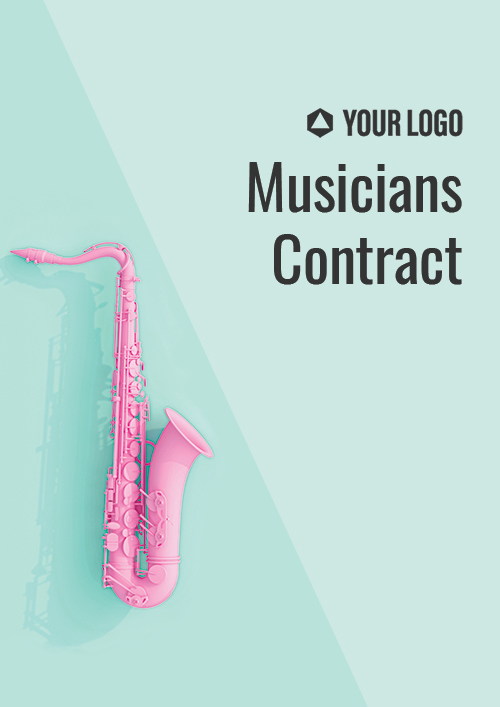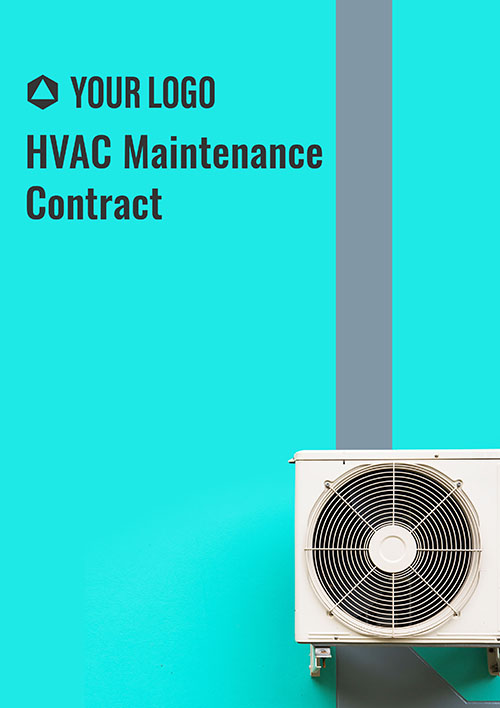Empty space
1x
2x
3x

Nanny Contract
Empty space
1x
2x
3x
Empty space
1x
2x
3x
Prepared for:
[Parent(s) Name]
Prepared by:
[Nanny Name]
Nanny Contract
Nanny Contract
This Nanny Contract (hereinafter referred to as "Contract") is made and entered on the effective date [Date] (hereinafter referred to as "Effective Date"),
By and Between
[Parents Name] (hereinafter referred to as the “Parent(s)”), with permanent address at [Parents Address], and;
[Nanny Name] (hereinafter referred to as the “Nanny”), residing at [Nanny Address].
The Parent(s) and the Nanny are collectively referred to as “Parties” and individually as "Party".
WHEREAS the Parent(s) desires to hire a Nanny for taking care of their child/children;
AND WHEREAS the Nanny agrees to render the services of a Nanny as per the terms and conditions laid down in this Contract.
NOW, THEREFORE, in consideration of the mutual covenants and promises contained herein, the Parties hereby agree as follows:
Empty space
1x
2x
3x
Terms and Conditions
Terms and Conditions
1. Child's Description
1. Child's Description
Child's Name | [Full Name of Child] |
Sex | [Male/Female] |
Age | [Number] |
Activities | [Description of Activities of the Child] |
Medical Needs | [Add Medical Description of Child] |
[Additional Information] | [Additional Information] |
2. Roles and Responsibilities of the Nanny
2. Roles and Responsibilities of the Nanny
The Nanny shall be responsible for taking care of the child during the intervals of time assigned by the Parent(s). In case of any emergencies, the Nanny shall immediately inform the Parent(s). In no case shall the Nanny leave the child/children unattended without assigning it back to the Parent(s), even if the prescribed time interval has ended. The Nanny shall strictly adhere to clean language and ethical standards while being around the child.
The Nanny shall ensure that the child/children perform all the activities that have been prescribed by the Parent(s) for that particular time intervals as mentioned below:
Description | Time Period |
[Homework] | [Mention the time frame] |
[Reading] | [Mention the time frame] |
[Eating] | [Mention the time frame] |
[Napping] | [Mention the time frame] |
[Playing] | [Mention the time frame] |
[Bathing] | [Mention the time frame] |
[Add other activities] | [Mention the time frame] |
3. Roles and Responsibilities of the Parents
3. Roles and Responsibilities of the Parents
- A detailed description of the daily routine of the child/children shall be given to the Nanny by the Parent(s) along with any special caution and care that is needed to be maintained with the child/children.
- The Parent(s) shall fix a timetable or convey in advance the specific time-intervals during which they want the Nanny to take care of the child/children.
- The Parent(s) shall duly inform the Nanny or leave in writing all the updated activities that they want the Nanny to carry out with the child/children.
4. Compensation
4. Compensation
The Nanny shall charge $[0.00] per [hour/week/month] as compensation for providing its services. The Nanny shall work for [number of hours] in a week. In case of over-time work, the Nanny shall charge $[0.00] per hour. The Nanny shall also be reimbursed for any out-of-pocket expense made on behalf of the children after submitting receipts for reimbursement to the Parent(s).
The Nanny shall be paid by the Parent(s) [daily/weekly/bi-weekly/monthly]. The compensation shall be paid via [cash/cheque/credit card].
5. Benefits
5. Benefits
In addition to the salary or compensation, the Nanny shall receive the following benefits:
Benefit | Description |
[Health insurance] | [Description] |
[Transportation costs] | [Description] |
[Parking costs] | [Description] |
[Add any other benefit] | [Description] |
6. Work Schedule
6. Work Schedule
The Nanny agrees to provide [number of hours] hours per week in accordance with the following schedule:
Day | Start Time | End Time |
Monday | [Time] | [Time] |
Tuesday | [Time] | [Time] |
Wednesday | [Time] | [Time] |
Thursday | [Time] | [Time] |
Friday | [Time] | [Time] |
Saturday | [Time] | [Time] |
Sunday | [Time] | [Time] |
7. Holidays and Time-off
7. Holidays and Time-off
The Nanny shall receive the following [paid/unpaid] time-off:
- Sick leaves: [Number of sick leaves]
- Personal days: [Number of personal days]
- Vacation days: [Number of vacation days]
The Nanny shall be entitled to holidays on the following days:
- New Year's Day
- Thanksgiving Day
- Christmas Day
- [Add any other day]
8. House Rules
8. House Rules
The Nanny shall have the access to the house of the Parent(s) where the child resides. The Nanny shall adhere to the following house rules:
- The Nanny shall not allow the children to enter the following area of the house: [Mention the area of the house]
- Screen time for Child shall be limited to [Minutes]
- [Mention any other house rules]
9. Leaves and Alternate Duty
9. Leaves and Alternate Duty
In the event that the Nanny is unavailable for duty or want to take leave, it is mandatory to inform the Parent(s) regarding the same at least [Number of days] in advance. In that case, the Nanny shall assign the duty of childcare to any other individual, but only upon the written approval of the Parent(s). Moreover, the Parent(s) shall be entitled to terminate the Contract if the Nanny is unavailable for more than [Frequency] in a [Time Period].
10. Emergency Contact
10. Emergency Contact
In case of any emergencies (such as if the child becomes sick or he/she suffers an injury), the following person should be contacted if the Parent(s) are not available:
- [Name], [Phone Number]
- [Name], [Phone Number]
11. Relationship of Parties
11. Relationship of Parties
The Nanny is not an independent contractor and the Parent(s) shall maintain all the necessary documents as per the laws of [State]. Further, the Parties hereby declare that there shall no other relationship between them besides the one defined in this Contract until the completion or termination of this Contract.
12. Confidentiality
12. Confidentiality
The Nanny understands that it shall have access to private information of the Parent(s) and the children (including medical, financial, legal, career, and educational) as a result of working with them. The Nanny understands that any and all private information must be kept strictly confidential and shall not be disclosed to any third party for any reason. This confidentiality clause survives post-termination of this Contract.
13. Social Media Policy
13. Social Media Policy
The Nanny understands that no information - direct or indirect - about the Parent(s) and the children shall be allowed to be shared on any social media network without the written consent of the Parent(s).
14. Termination
14. Termination
Either of the Parties can terminate this Contract for any of the following reasons:
- Non-performance of job responsibilities;
- Misuse of any equipment or vehicles;
- Breach of any terms of this Contract;
- [Add any other reasons approved by the Parent]
15. Arbitration
15. Arbitration
In the event of any dispute arising in and out of this Agreement between the Parties, it shall be resolved by Arbitration. There shall be [Number of Arbitrators] Arbitrators which shall be appointed by [Party Name]. The venue of Arbitration shall be [Venue/Location of Arbitration] and Seat shall be [State]. The Arbitrators' decision shall be final and will be binding on both the Parties.
16. Miscellaneous
16. Miscellaneous
- Assignment: No party may assign any of its rights or obligations or assign any of its terms of this Contract without the prior written consent of the other party, except where otherwise stated.
- Modification: No modification of this Contract shall be made unless in writing, signed by both parties.
- Governing Law: This Contract shall be construed by and in accordance with the laws of [State].
- Legal and Binding Contract: This Contract is legal and binding between the Parties as stated above. This Contract may be entered into and is legal and binding in the [Region/State/Country]. The Parties each represent that they have the authority to enter into this Contract.
- Entire Agreement: This Contract constitutes the entire Contract of the parties. No representations, promises, terms, conditions, obligations, or warranties whatsoever referring to the subject matter hereof, other than those expressly set forth herein, shall be of binding legal force or effect.
Acceptance and Signature
Acceptance and Signature
The Parties hereby agree to the terms and conditions of the contract and provide their acceptance by signing below:
[Nanny Name]
[Parent(s) Name]
Signature
Assign signer 1
Name
Assign signer 1
Date
Assign signer 1
Signature
Assign signer 2
Name
Assign signer 2
Date
Assign signer 2
Empty space
1x
2x
3x
DISCLAIMER: Revvsales, Inc is not a law firm. The content provided herein is for general information purposes only, and does not constitute legal advice. Revvsales, Inc and its partners make no representation or warranty of any kind, express or implied, regarding the accuracy, adequacy, validity, reliability, availability, or completeness of any information mentioned hereunder. The use or reliance of any information contained herein is for your personal use and solely at your own risk. You agree to fully release and indemnify Revvsales, Inc from any liability associated with the use of this content. You are advised to obtain independent legal advice before taking or refraining from any action on the basis of the content provided here.
DISCLAIMER: Revvsales, Inc is not a law firm. The content provided herein is for general information purposes only, and does not constitute legal advice. Revvsales, Inc and its partners make no representation or warranty of any kind, express or implied, regarding the accuracy, adequacy, validity, reliability, availability, or completeness of any information mentioned hereunder. The use or reliance of any information contained herein is for your personal use and solely at your own risk. You agree to fully release and indemnify Revvsales, Inc from any liability associated with the use of this content. You are advised to obtain independent legal advice before taking or refraining from any action on the basis of the content provided here.















